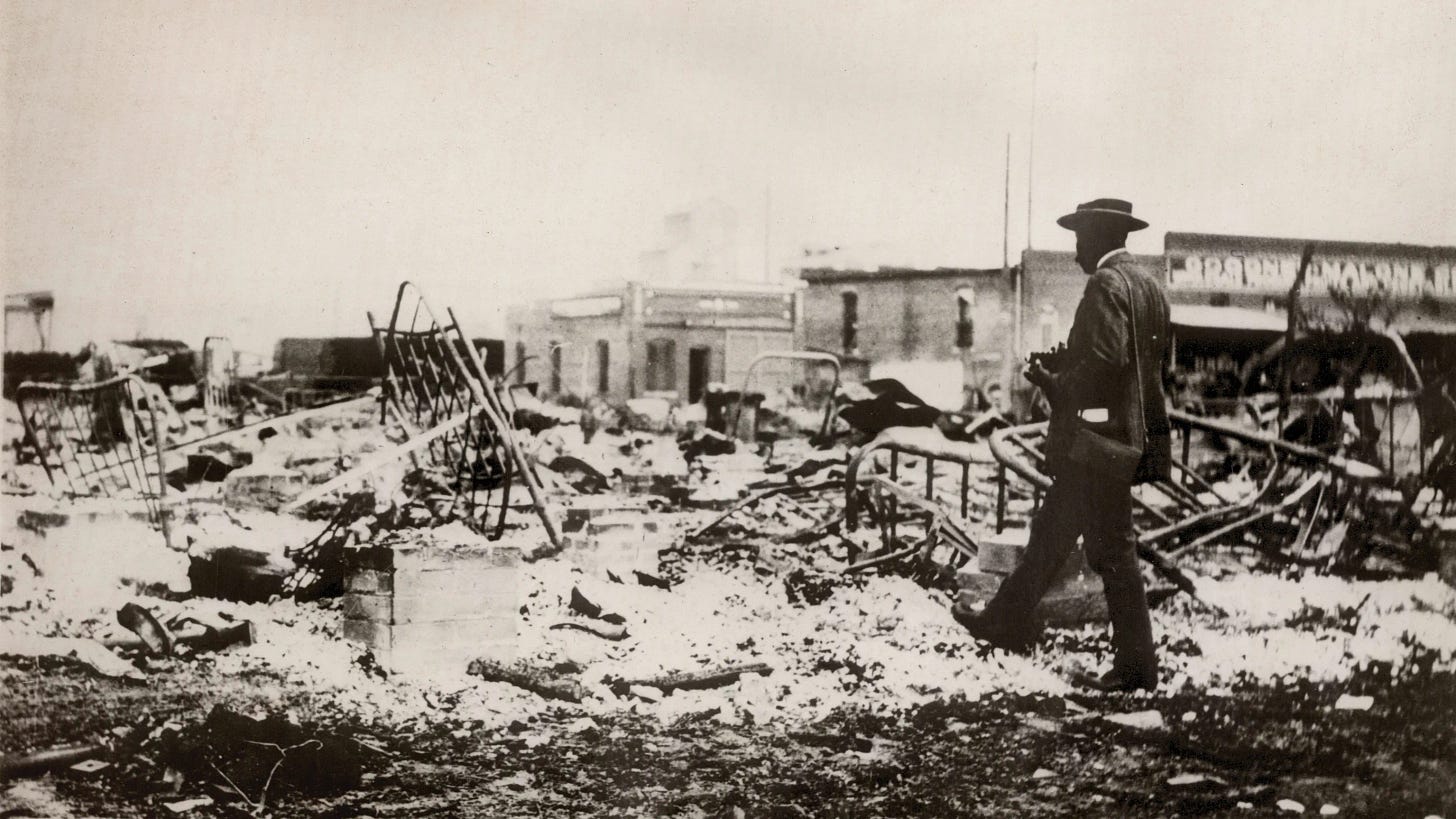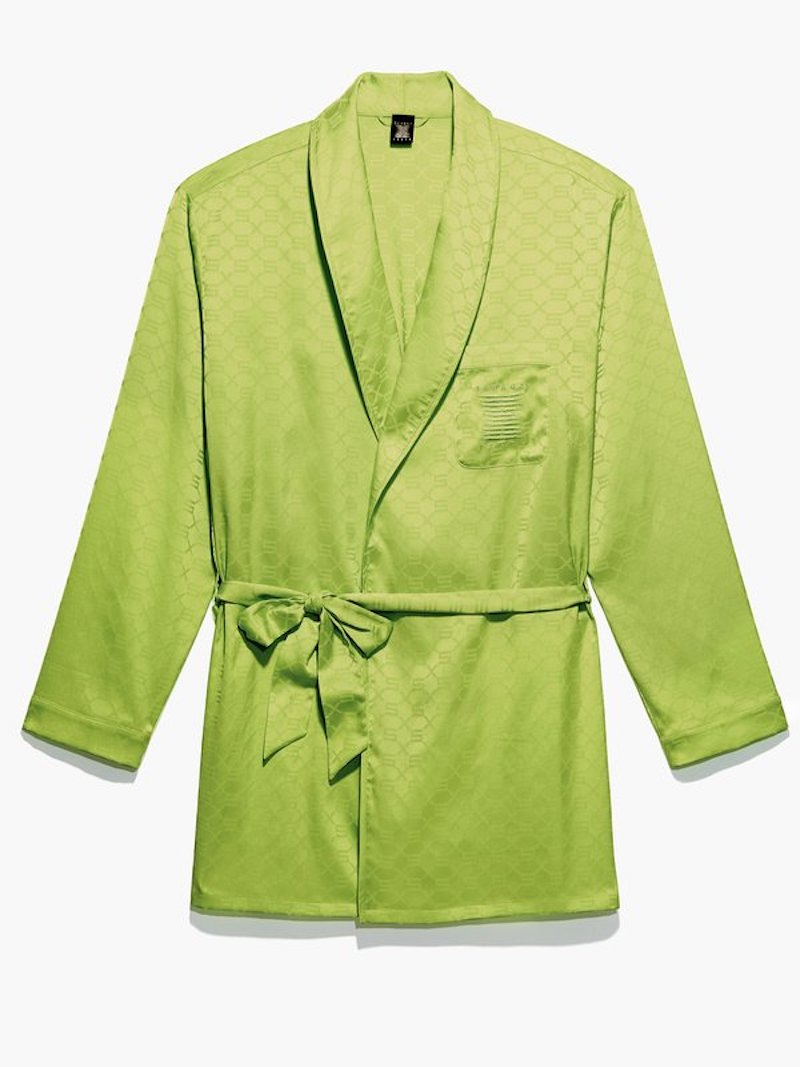Naomi Osaka reminds us that our work is not worth our well-being
Plus: The Biden administration’s plan to close the racial wealth gap, House Democrats attempt to decriminalize weed again and an acid-green jacket that inspires nostalgia.
👋🏾 Hi, hey, hello!
It’s June, which means it’s Pride Month — shoutout to all my LGBTQ+ friends and allies who are committed to making the world a safe and equitable space for us to fully express ourselves. Today is also Global Parents Day (hi mom and dad!).
Forgive me for being missing in action last week. I took my MacBook to the Apple Store last weekend for what I assumed would be a quick-fast repair. But they ended up sending it to Memphis to get fixed up. I’ll be better prepared next time.
Anyway, let’s get to the news:
Naomi Osaka
You’ve probably heard by now that tennis star Naomi Osaka opted out of the French Open yesterday after she announced her decision to skip her press obligations due to the impact they have on her mental health and was subsequently fined $15,000 by tennis officials and threatened with expulsion from the French Open, as well as suspension from future Grand Slam tournaments. (In a wild bit of irony, the head of the French Tennis Federation read a pre-prepared statement … then refused to take questions from the media.)
“The truth is that I have suffered long bouts of depression since the US Open in 2018 and I have had a really hard time coping with that,” Osaka wrote in a statement. “I’m gonna take some time away from the court now, but when the time is right I really wanna work with the Tour to discuss ways we can make things better for the players, press and fans.”
There are two factors at play here. Osaka is among a generation of athletes who realize that without them the show can’t go on. This reality offers superstars a ton of leverage against stodgy executives and institutions. Second, social apps empower Osaka and her contemporaries to bypass traditional media channels to connect with their fans on their own terms. And in the process, she’s taught us a valuable lesson: Our work is not worth our well-being.
+ Jon Allsop at Columbia Journalism Review: “Naomi Osaka and the meaning of press freedom”
The White House
Earlier today, on the centennial of the Tulsa Race Massacre, President Joe Biden announced a series of new initiatives to narrow the racial wealth gap and build Black wealth by expanding access to homeownership and small business ownership — two key wealth-creators — in communities of color and disadvantaged communities. Here are the highlights:
The administration launched a first-of-its-kind interagency effort to address inequity in-home appraisals and conducting rulemaking to aggressively combat housing discrimination.
It also committed to growing federal contracting with small disadvantaged businesses by 50 percent. And it created a $10-billion fund and pledged $15 billion in grants to support infrastructure projects as part of the American Jobs Plan.
On the business front, the federal government will invest $31 billion in programs that increase access to capital and provide mentoring, networking, and other forms of technical assistance to socially and economically disadvantaged businesses seeking to access federal contracts and participate in federal research and development investments.
These actions are long overdue as the median Black American family owns thirteen cents in wealth for every dollar held by White families.
+ Speaking of gaps: Women earned 84 percent of what men earned in 2020, according to new research from the Pew Research Center. While this gap among all workers last year was down from 36 cents in 1980, women would still have to work an extra 42 days to earn what men did.
Marijuana decriminalization
Last Friday, a group of House Democrats reintroduced the Marijuana Opportunity Reinvestment and Expungement (MORE) Act, a bill that would decriminalize marijuana at the federal level and allow people with cannabis-related convictions to have their records expunged.
The bill would remove weed, which is currently in the same class as heroin and ecstasy, from the Controlled Substances Act and empower states with the sole authority to determine cannabis policy. Federal courts would have to expunge prior convictions, allow prior offenders to request expungement and conduct resentencing hearings for those still under supervision for cannabis-related offenses. Additionally, marijuana products would be taxed 5 percent to fund three grant programs to invest in communities affected by the country’s racist decades-long war on drugs, loans for small marijuana businesses and programs to minimize barriers to licensing.
The House passed the bill last December but has since been held up in the Senate and opposed by organizers like Kevin Sabet, co-founder and president of Smart Approaches to Marijuana (SAM) who claim the MORE Act’s cosponsors have “[fallen] victim to the false promises of Big Tobacco, Big Alcohol, and Big Pharma investors and lobbyists.” Rep. Jerry Nadler, a Democrat from New York and chairman of the House Judiciary Committee, says the MORE Act will help our federal weed laws keep up with states like Arizona, Montana, New Jersey and South Dakota that passed ballot measures to legalize weed for adults and lawmakers in New York, New Mexico and Virginia who passed legislation to legalize cannabis.
From the Archive: “We’re a less creative nation because we still stigmatize weed”
+ Expect to see a surge in candidacies by Black women for statewide offices during next year’s midterm elections. From Bill Barrow at AP News: “It’s a developing consensus that Black women can assemble Democrats’ ideal alliance for statewide elections: older Black voters, younger voters across racial and ethnic lines, urban white liberals and enough white moderates, especially women, in metro areas.”
+ Bad news for journalists and politicians: The media and federal government are among the least-trusted institutions with 53 percent of registered voters saying they have little to no confidence in the former and 52 percent saying the same of the latter.
Twitter
Sara Fischer at Axios reports that Twitter partnered with climate journalist and meteorologist Eric Holthaus to launch Tomorrow, a local weather news service powered by Twitter’s new suite of creator products, including paid newsletters and ticketed live audio rooms.
In January, Twitter announced its acquisition of newsletter platform Revue to attract creators, journalists and publishers to the app with lower fees than the current industry standard Substack, which provides the tech for The Supercreator. And last year the company also launched Spaces, its live-audio alternative to Clubhouse that enables listeners to react to what they hear with emoji, tweet or DM in the Space or request to speak.
Tomorrow is available in 16 North American cities and has attracted the participation of 18 local meteorologists who will create exclusive premium content for 10 bucks per month. “Weather is a perfect match for Twitter,” Mike Park, Twitter’s VP of product, said to Fischer. “Some of the largest spikes in conversations on Twitter are tied to severe events like hurricanes, floods and fires.”
According to Fischer, Tomorrow is the first of several local writer “collectives” that Twitter wants to invest in via tools that bring experts or influential people together and help writers promote their collectives inside newsletters. A Twitter spokesperson declined to comment when asked about the motivation behind these investments and if Twitter is betting that independent creators will join or establish collectives to support and scale their work over solo creative businesses.
+ Twitter is testing three new labels — “Get the latest”, “Stay Informed” and “Misleading” — to warn users of misinformation.
+ Twitter is also experimenting with ads in Fleets, its Instagram Stories-like feature it launched last year. The ads are available to a select group of advertisers and resemble the full-screen vertical apps you’re used to seeing on Instagram and Snapchat.
Read All About It
Eugene Robinson at The Washington Post on the Tulsa Race Massacre:
The aftermath of the riots saw the codification of Jim Crow laws and the intensification of unwritten practices such as redlining, intended to keep Black Americans “in their place.” The destruction of African American businesses amounted to theft on a massive scale — a theft whose impact was felt for generations. The Greenwood neighborhood of Tulsa could have become an enclave of Black millionaires. But Whites were not about to let that happen.
Sean Illing at Vox in conversation with Kevin Carey on the value of higher education:
I think [students and parents] should think deeply about the value of all of their choices in higher education, because there’s an enormous amount of variance in value. Not all colleges are the same. They don’t charge the same amount of money, they don’t provide the same experience, and your odds of graduating are very different depending on what institution you enroll in.
I guess the last thing I’d say is that college has become very high-stakes both from a price standpoint and a value standpoint. So no one should wait to think hard about the value of higher education. The moment is now to take a hard look at all of the choices and not believe all the promises that colleges make. Because they’re making them in their own interest, not in yours.
Natalie Shure at The New Republic on Melinda Gates:
Taken all together, you’d be forgiven for suspecting Melinda herself might be behind some of the coverage (linked to by more thana fewTwitter users with tongue-in-cheek compliments to Melinda’s P.R. Team). Nonetheless, they do have a point: While Bill’s role at Microsoft generated the couple’s obscene fortune, it was largely Melinda who laundered it, helming their image as the world’s top philanthropists—a reputation both parties seem intent on preserving even as their personal relationship dissolves. But that sterling reputation has never been justified. As Bill’s brand as a squeaky-clean, dorky do-gooder takes a well-deserved beating, it’s wise not to get too sucked in to this made-for-People soap opera of two dyed-in-the-wool plutocrats battling for brand supremacy atop a massive pile of money. This is a story without heroes.
Mitzi Jonelle Tan at Teen Vogue on the mainstream climate movement’s lack of creativity:
There are very serious reasons to be creative, as activism can be exhausting and dangerous. Here in the Philippines, activists can get arrested without a warrant, disappear without a trace, and be killed in broad daylight. Campaigning in more subtle, creative ways keeps us safe. Even if it’s scary, I carry on without burning out because my activism is no longer rooted in fear or anger, but in love: a love for the people, humanity, and the planet, and love will always be greater than fear. There also has to be a place for fun in the climate justice movement if we’re going to pick ourselves up and keep going after every setback.
Olga Khazan at The Atlantic on the porn crisis that isn’t:
Porn makes for an easy target. But legislators focused on labeling it as a public-health crisis should consider what problems they are actually trying to solve. Many researchers and adult-entertainment workers support measures that would reduce kids’ access to porn, ensure that porn videos portray only consenting adults, and mandate fair wages for sex workers. Calling adults’ legal use of pornography a “public-health crisis” doesn’t do any of that.
Anna Rahmanan at Newsweek on why America craves heartbreaking TV:
Absurdly, flipping through any news channel (or social media platform, for that matter), unleashes the same storm of misfortunes. We see murders, family discords, racial injustices and endless arguments take center stage throughout the 24-hour news cycle and therefore can't help but wonder why, as a country, we seem to solely be attracted to depressing fictional TV programs. Why are dramas like Tell Me Your Secrets and Top of the Lake considered prestige TV? Especially given the current world order, shouldn't we be begging for some laughter over displays of endless doom? After all ... isn't it harder to make us laugh than cry?
Michael’s Pick
Savage X Fenty Smoking Jacket in Acid Lime Jacquard Monogram ($90): Part of Rihanna’s limited-edition pride capsule collection, this all-gender jacket is giving my college-aged self — and his penchant for high-wattage colors — all kinds of fever.




